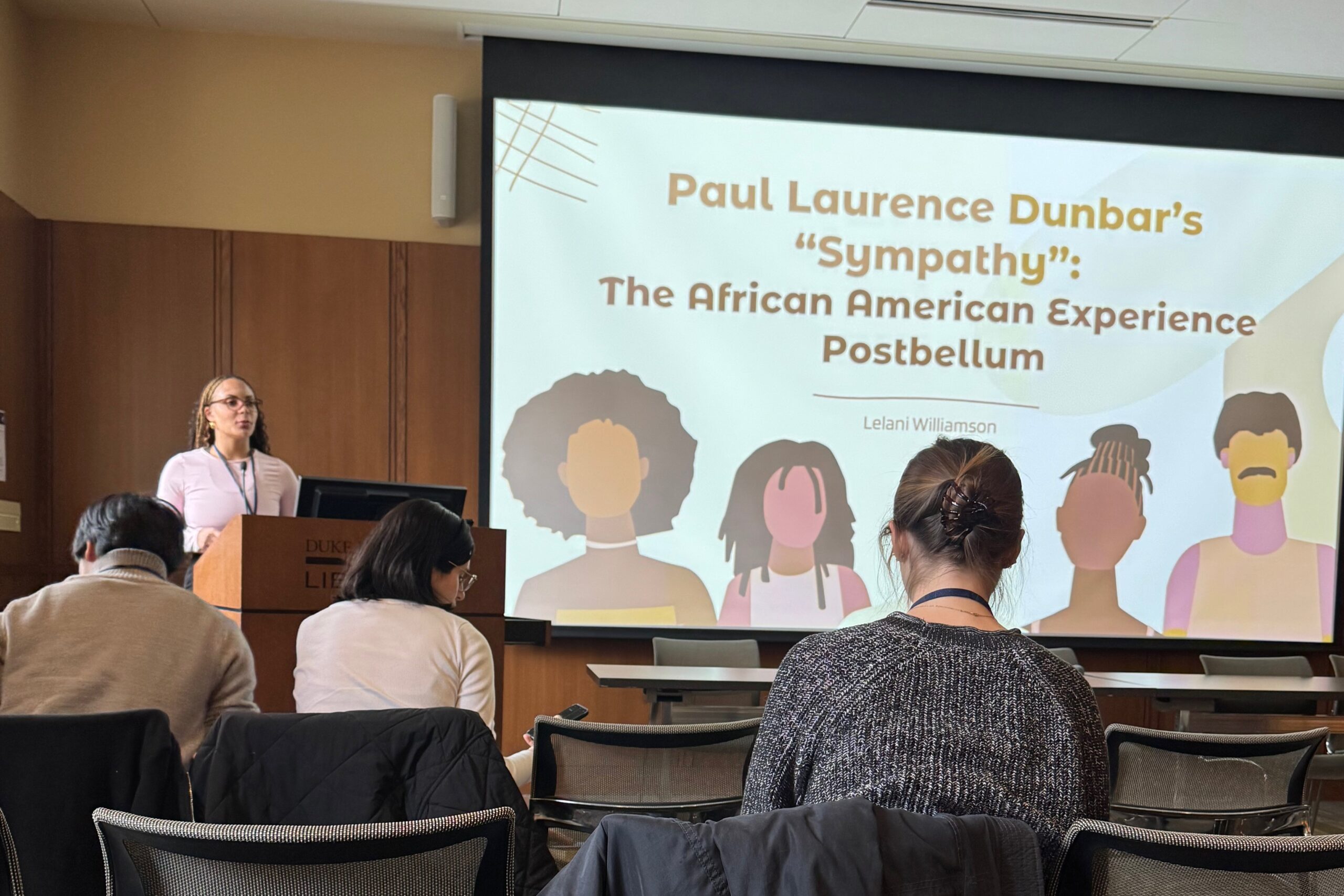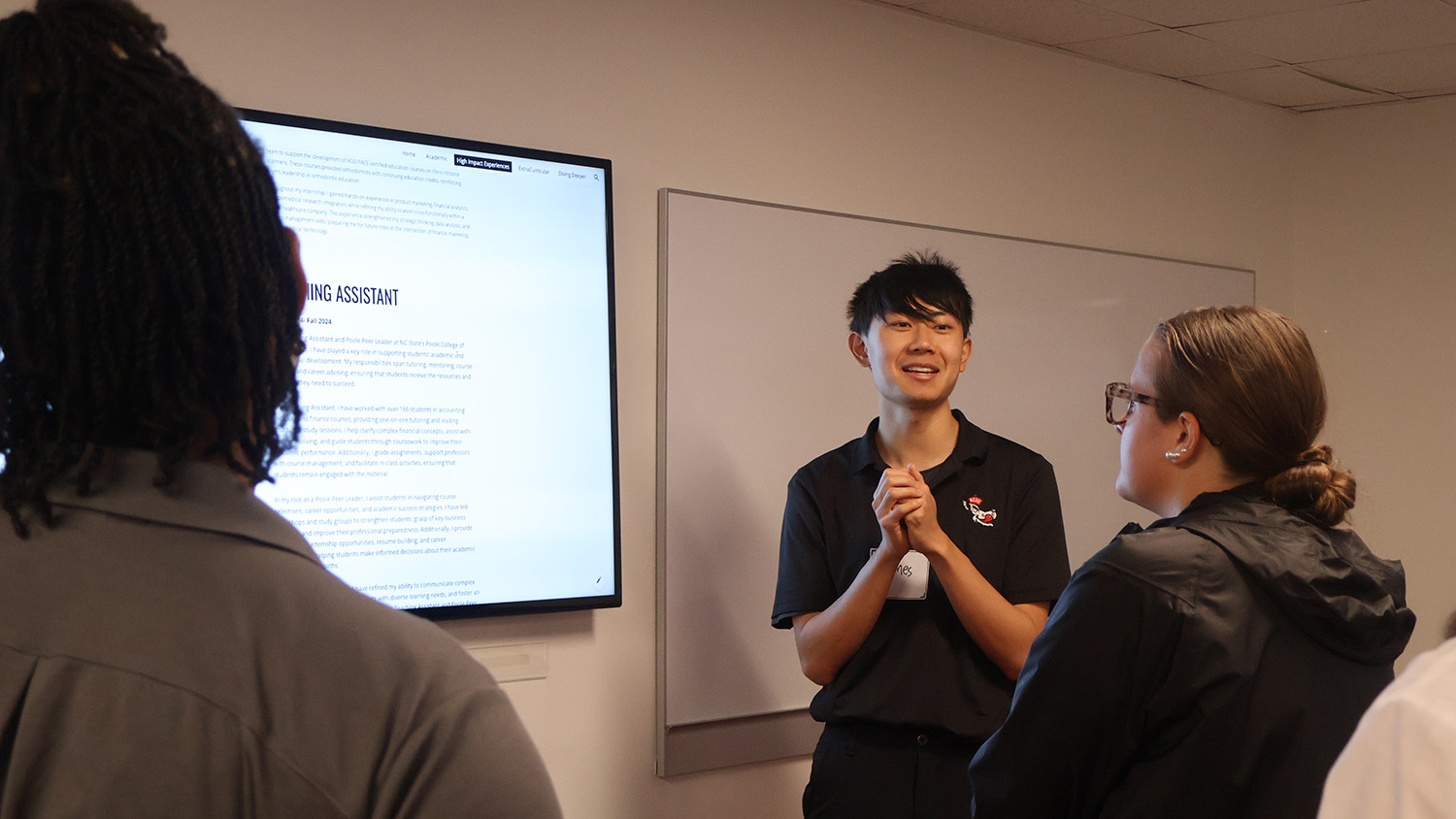Spotlight on our Students: Summer at the Museum
Colin Gravelle outside the American Museum of Natural History in New York City.
“Studying anthropology, I myself have a great love and appreciation of other cultures and societies. The University Scholars program helped me take it from a passion and an interest and develop it into an area I could talk comfortably about in an academic setting. The staff and other students help to create a great environment for discussion, debate, and growth like few other programs I have ever been a part of.”
In this edition of Spotlight on Our Students, we check in to the American Museum of Natural History in New York City and Universty Scholar Colin Gravelle who is helping on an object classification internship. Colin’s work is focused on creating curitorial notes on objects in the museum’s African and Pacific collections. Colin is a rising second-year University Scholar from Waxahaw, NC majoring in Anthropology. Read on to learn more about his work and research in the Big Apple.
USP: What inspired you to take an internship at the American Museum of Natural History in New York City?
CG: I stumbled upon the internship application while looking for productive ways to spend my summer. I had been looking at other opportunities closer to home, but working at the museum was exactly the type of thing I was looking for. The museum offered internships to students my age, which not very many do. I also had a place to stay in the city less than 10 blocks away from the museum. The pieces for what I wanted to do and what I was able to do lined up perfectly. After that, I knew I was going to apply and just had to hope I would be offered a spot.
USP: That is one of those classic examples of being ready for everything to fall into place perfectly! What do you hope to learn from your time at the museum?
CG: One of the major things I hope to learn from my time at the museum is how well suited I am to museum studies and to learn first hand what working in the area of my major entails. While I do spend the majority of my time researching, most of what I learn is from the other aspects of my environment. I work very closely with the woman in charge of the African and Pacific Ethnology department, literally and figuratively. She is our direct supervisor so I work in her office. She reviews and approves all of my writing, providing insight and advice from years of working at one of the largest museums in the world.
USP: That’s very cool. It is so valuable to have the opportunity to really put what you are studying to use and see if it is a great fit for you. What do you hope to accomplish while you are there?
CG: Other than getting work done for the museum, I hope to expand my understanding of anthropology as well as to observe different areas of the museum work. I have the unique opportunity to see how one of the biggest museums in the world operates behind the scenes. I have a backstage pass and guided tour of the inner workings of the museum. I work in an office where the walls are covered with books about every kind of culture. Just walking into work every morning I stroll past dozens of objects that are hundreds, and some thousands, of years old. In this kind of immersive environment, I am given so many opportunities to learn skills I did not even know I needed to have and become interested in areas that I was not even aware existed.
USP: What are some of your main responsibilities at the museum?
CG: At the moment, I spend most of my work hours at the museum writing curatorial notes for the museum’s collections database. I have a wide variety of objects available to write about, mainly dealing with Pacific cultures. I choose which one I wish to write about, then research the history of the object or objects similar, and write a small piece on it. This piece becomes the curatorial note posted under the object on the database. Several of my fellow interns have similar jobs and we cooperate to work our way through the collection.
USP: That’s very interesting work and sounds like it gives you solid practice in your chosen field. How has your time in the USP prepared you for this internship?
CG: The University Scholars Program has a great appreciate for diversity and culture. Studying anthropology, I do myself have a great love and appreciation of other cultures and societies. The Scholars program helped me take it from a passion and an interest and develop it into an area I could talk comfortably about in an academic setting. The staff and other students help to create a great environment for discussion, debate, and growth like few other programs I have ever been a part of.
USP: What kind of advice would you give other University Scholars thinking about applying for their first internship?
CG: The best advice I can give, I believe, is always apply for what you want. It is always better to take a few hours here and there and apply for the job or internship or opportunity. I rewrote my application essay six times at least without really believing I had a chance to get this internship. I am still blown away and slightly confused as to why I was chosen over so many other applicants. I was a first-year student with no experience applying to one of the most prestigious museums in the world and the birthplace of cultural anthropology. Despite that, I applied and now get to work with objects that were recovered by the foremost figures in the history of anthropology.
USP: Yes! It’s so important to take that leap of faith and see what happens because of it. Could you tell us the best advice you’ve ever received?
CG: The best advice I’ve received is to pursue what you’re passionate about. I am studying anthropology. People do not study anthropology for any other reason than the love of the subject. I may be starting a step behind my friends in engineering when it comes to making money in the future, but I will be more satisfied doing what I love than what is expected of me or makes more money. It is a lot harder to be miserable going to a job you love where you get to do something you are excited about. If that overlaps with the money and expectations, then all the better. I’m not knocking any lifestyle or career choice; I just know what is right for me. It may sound silly now, but I only have one life and I want to enjoy what I do.
USP: That really is great advice! Enjoy the rest of your time at the museum and we’ll catch up when you get back to campus.
- Categories:


